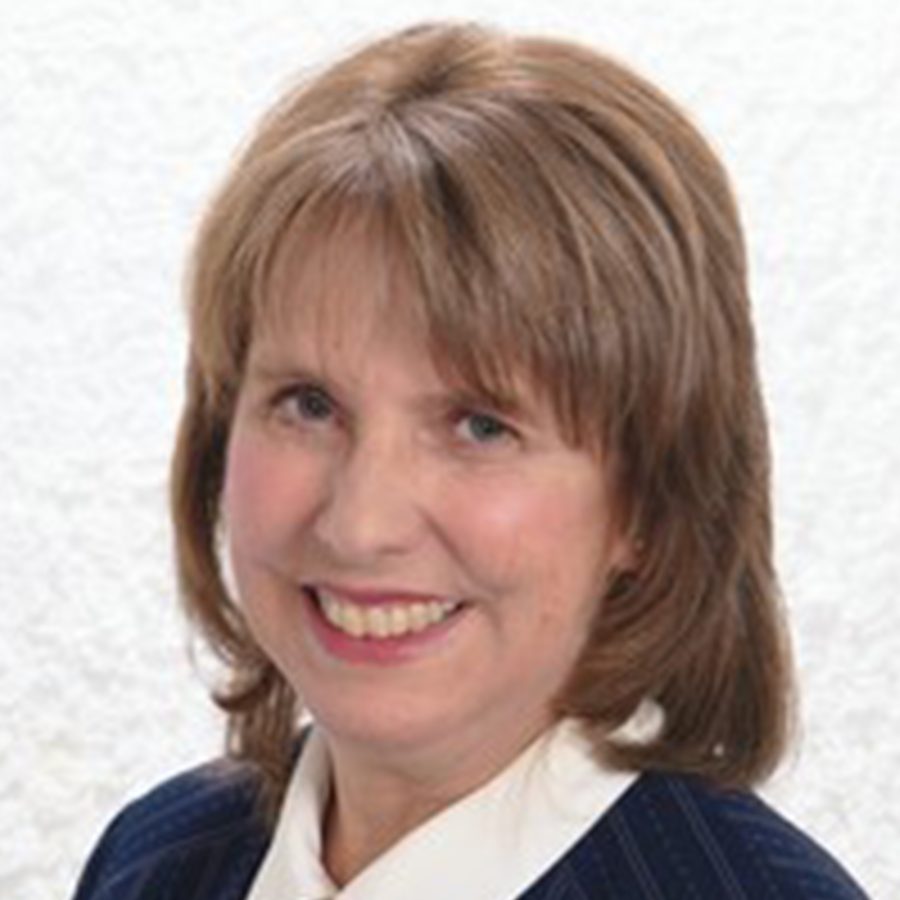Five Ways a Church Can Observe National Suicide Prevention Month

Dr. Karen Mason
Professor of Counseling and Psychology, Director of the Hamilton Counseling Department
September is National Suicide Prevention Month. Why should a church observe it?
- Because suicide happens in the church[1], even to pastors[2]. In a recent study, 11.41% of 745 congregants (85) said they currently had thoughts of suicide.[3]
- Because God created all life in his own image (Gen 1:27-28).
- Because the Apostle Paul modeled suicide prevention when he stopped the suicide of the Philippian jailer (“Don’t harm yourself!” Acts 16:28).
- Because suicide is a growing tragedy. In 2018 (before the pandemic) more people died by suicide (48,344) than died an opioid-related death (46,802).[4]
According to the latest data from the Centers for Disease Control and Prevention, the number of suicide deaths in the U.S. continues to climb.[5] (Pandemic numbers are not yet available.)
How does the Church follow the example of the Apostle Paul, care for all life and prevent suicide? How do we care for the suicidal congregants at our church who are wondering if the Bible or their church has anything relevant to say about their suicidal struggles?
There are five ways a church helps prevent suicide:[6]
Observe Suicide Prevention Month by Embodying the Gospel
I have been in churches that embody the Gospel, where congregants are willing to ask tough questions and they can trust their brothers and sisters with their stories and expect to not be judged. Churches want to foster this kind of safe and connected community where congregants gain a sense of belonging and safety.
This is how congregants describe a Gospel-embodied church:
“People feel like they don’t have to hide. The culture doesn’t ask them to put on a happy face. Leaders are modeling transparency and admitting they’ve got their own issues.”[7]
“[Churches] set a culture where it’s okay to struggle, and be open and authentic about that. …. So there is not this sort of projection that we’re all perfect.”
In the context of suicide, a Gospel-embodied church is aware that suicide happens in the church and fosters a judgment-free community which encourages the safe confidential disclosure of suicidal thinking. One way to do this during Suicide Prevention Month is to pray for suicidal people. I remember the electricity I felt when my church first started praying for suicidal people. Here is an example of a responsive prayer:
We pray to you, Father, for all those in despair
That they would choose life
For those facing devastating loss
That they would remember your presence and intercession for them
For all those who feel they are a burden
That they would love themselves as you love them
For all those without hope
That they would find in you, Father, a reason to live
For those who feel alone
That they would find in our gathered community a reason to live
For those facing evil in this world
That they would remember your redemption of the evil done to Joseph.
For all those suffering the misery of depression and other psychological pain
That they would reach out for help like blind Bartimaeus
For all those in despondent desolation
That we would reach out to them
Almighty God, you alone give life and take it but life is not easy. With the psalmist, we proclaim that without you, we would be swallowed alive, torn up and engulfed by the floods and swept away by the torrents of this life. Preserve us, Father. We put our hope in you, Father, Son and Holy Spirit. Amen.[8]
Another way to foster a safe and connected community aware that suicidal thinking happens to people of faith is to preach or teach about Moses (Numbers 11:10-15), Elijah (1 Kings 17-19), or Jonah (4:3) who all wanted to die. Some pastors have been transparent about their own experience of seeing God intervene in the context of their own suicidal thinking.
Observe Suicide Prevention Month by Equipping the Church to Help
If people feel safe enough to reach out, a Gospel-embodied community needs to know how to help a suicidal person who courageously reaches out for help. Help your church become a skilled, equipped community. You can do that by adding the National Suicide Prevention Lifeline number (1-800-273-TALK) to the bulletin, to the website and Facebook page, and on the announcement slide. Or you can train your church on a suicide-intervention model like Be NICE, now in over 50 churches and 150 schools in western Michigan. Basic training you can include in your bulletin is available here.
Observe Suicide Prevention Month by Networking with Local Agencies
When a suicidal person reaches out for help, you may need to connect the person to local community resources to support the suicidal person through their challenging life circumstances. Gospel-embodied churches are well-networked and ready to help. Some resources might include housing, food banks, financial assistance, health clinics, employment, mental health providers and domestic violence shelters, to name a few. During Suicide Prevention Month, make a list of local resources and distribute it to helpers in your church.
Observe Suicide Prevention Month by Preaching and Teaching on Life and Hope
Preaching and teaching the life-affirming messages from the Bible is crucial. The Bible is crystal clear about the value of each life and hope in the midst of suffering. This is what some pastors say about the importance of preaching and teaching on life and hope:
“We can now look at major characters in the Hebrew Bible and show that they were depressed. Does God punish them for those thoughts? No. Most often God sends people to help. And telling these stories is protective because, for one thing, people see that they are not the only ones who feel that way.”
“We invite the church to understand that they are the greatest delivery system of hope in their city. …. The church is the place that God created to manifest and distribute that hope.”
This month, preach or teach through this list of seven biblical principles that help prevent suicide[9]:
- Connection to others
- Worth and dignity of every person
- Hope
- Moral objections to suicide and reasons to live
- Self-control and the habit of choosing life
- Managing grief and suffering
- Reaching out for help
Observe Suicide Prevention Month by Encouraging Personal and Communal Worship
Personal and communal worship are vital to preventing suicide. Suicidal people experience the power of prayer, of reading the Bible, and of worship singing, both personally and communally. God himself ministers to suicidal people (Ps 41:3) through these practices. But prayer also fosters a Gospel-embodied church. This is how one congregant explains it:
“[Asking for prayer] shows a layer of vulnerability, a layer of honesty. I think it shows that we’re not hiding things from each other, like everything’s perfect…When people ask for prayer, it is one step towards showing people that, “Hey, I’m not perfect” and we still support them and accept them.”[10]
We can stop the climbing number of suicides but it is going to take all of us working together, including the Church. Without the Church, suicidal people may not hear the life-affirming messages they need to hear. And without a Gospel-embodied church, suicidal people may not reach out for help when they need it.
For more suicide prevention resources, click here, or view the following additional resources from Dr. Mason:
- Read Dr. Mason’s blog, Preventing Suicide by Providing Deep Community
- Listen to Discover the Word’s Reasons to Live 5-part podcast with Dr. Mason, addressing suicide prevention.
- Read other articles about suicide prevention Dr. Mason published in Religions and the Journal of Pastoral Care and Counseling.
[1] Matthew Warren, son of Rick and Kay Warren, took his life 4/5/2013.
[2] Inland Hills (Chino, California) Lead Pastor Andrew Stoecklein died by suicide on 8/25/2018. Pastor Steve Austin, author of From Pastor to Psych Ward: Recovery from a Suicide Attempt is possible, attempted suicide in 2012. ([email protected]). Pastor Jarrid Wilson died by suicide September 9, 2019.
[3] Mason, K., Martin, W.B., & Kim, E. (2018). Suicidal thinking and sense of community in faith communities. Special Issue entitled: “Suicide Prevention, Religion and Spirituality.” Religions, 9(40), doi: 10.3390/rel9020040
[4] CDC Data Brief 356. Drug Overdose Deaths in the United States, 1999–2018: https://www.cdc.gov/nchs/data/databriefs/db356_tables-508.pdf#page=3
[5] Centers for Disease Control and Prevention, National Center for Injury Prevention and Control. Web-based Injury Statistics Query and Reporting System (WISQARS) [online]. (2005) [cited 2019 December 31]. Available from URL: www.cdc.gov/injury/wisqars
[6] Mason, K., Robinson, F., Buescher, L., Lee, J-I, Smith, A., & Yang, Z. (2020, April 25). How faith communities help build lives worth living. Poster session presented at the virtual Annual Convention of the American Association of Suicidology.
[7] All quotes are from: Mason, K., Robinson, F., Buescher, L., Lee, J-I, Smith, A., & Yang, Z. (2020, April 25). How faith communities help build lives worth living. Poster session presented at the virtual Annual Convention of the American Association of Suicidology.
[8] Gibson, S., & Mason, K. (2020). Preaching Hope in Darkness: Help for Pastors in Addressing Suicide from the Pulpit. Bellingham WA: Lexham Books
[9] Gibson, S., & Mason, K. (2020). Preaching Hope in Darkness: Help for Pastors in Addressing Suicide from the Pulpit. Bellingham WA: Lexham Books.
[10] Mason, K., Hu, Y., Kim, E., Korver, D., Xia, L., & Coniglio, N. (2019). Unique experiences in religious groups, in the U.S. and China—a qualitative study. Journal of Mental Health, Religion and Culture, 21(6), 609-624.
 Dr. Karen Mason is the Director of the Hamilton Counseling Department and Professor of Counseling and Psychology at Gordon-Conwell Theological Seminary. She completed an M.A. in Old Testament at Denver Seminary and an M.A. and Ph.D. in counseling psychology at the University of Denver. Before moving to Massachusetts, she managed the Office of Suicide Prevention at the Colorado Department of Public Health and Environment. She is currently in private practice. Her research is focused on the clergy’s and faith community’s role in suicide prevention. She is a member of the American Counseling Association and the American Psychological Association.
Dr. Karen Mason is the Director of the Hamilton Counseling Department and Professor of Counseling and Psychology at Gordon-Conwell Theological Seminary. She completed an M.A. in Old Testament at Denver Seminary and an M.A. and Ph.D. in counseling psychology at the University of Denver. Before moving to Massachusetts, she managed the Office of Suicide Prevention at the Colorado Department of Public Health and Environment. She is currently in private practice. Her research is focused on the clergy’s and faith community’s role in suicide prevention. She is a member of the American Counseling Association and the American Psychological Association.